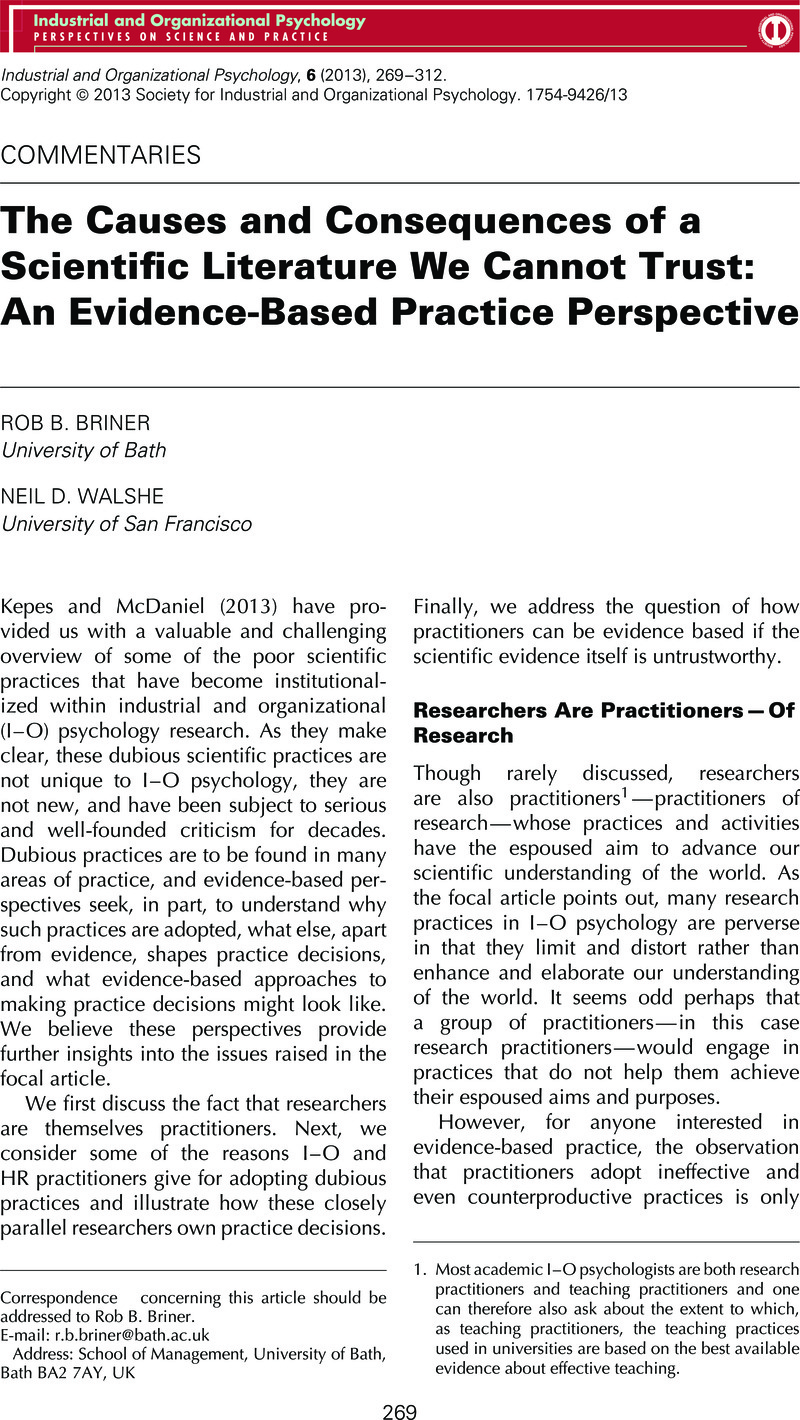Crossref Citations
This article has been cited by the following publications. This list is generated based on data provided by Crossref.
Byington, Eliza K.
and
Felps, Will
2017.
Solutions to the Credibility Crisis in Management Science.
Academy of Management Learning & Education,
Vol. 16,
Issue. 1,
p.
142.
Barnes, Christopher M.
Dang, Carolyn T.
Leavitt, Keith
Guarana, Cristiano L.
and
Uhlmann, Eric L.
2018.
Archival Data in Micro-Organizational Research: A Toolkit for Moving to a Broader Set of Topics.
Journal of Management,
Vol. 44,
Issue. 4,
p.
1453.
Robertson, Peter J.
2020.
The Oxford Handbook of Career Development.
p.
353.
Leroy, Hannes L.
Anisman-Razin, Moran
Avolio, Bruce J.
Bresman, Henrik
Stuart Bunderson, J.
Burris, Ethan R.
Claeys, Johannes
Detert, James R.
Dragoni, Lisa
Giessner, Steffen R.
Kniffin, Kevin M.
Kolditz, Thomas
Petriglieri, Gianpiero
Pettit, Nathan C.
Sitkin, Sim B.
Van Quaquebeke, Niels
and
Vongswasdi, Pisitta
2022.
Walking Our Evidence-Based Talk: The Case of Leadership Development in Business Schools.
Journal of Leadership & Organizational Studies,
Vol. 29,
Issue. 1,
p.
5.
Doyle, Nancy Elizabeth
McDowall, Almuth
Randall, Raymond
Knight, Kate
and
Weinberg, Ashley
2022.
Does it work? Using a Meta-Impact score to examine global effects in quasi-experimental intervention studies.
PLOS ONE,
Vol. 17,
Issue. 3,
p.
e0265312.
Evans, Thomas Rhys
Branney, Peter
Clements, Andrew
and
Hatton, Ella
2023.
Improving evidence-based practice through preregistration of applied research: Barriers and recommendations.
Accountability in Research,
Vol. 30,
Issue. 2,
p.
88.



